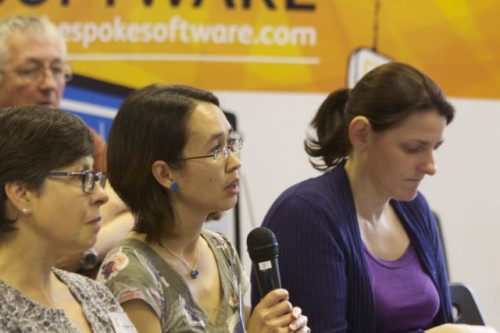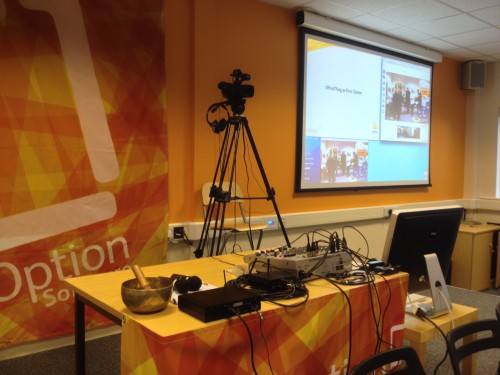
As part of our series of #FirstThing events at First Option Software, we recently held a breakfast event for 30+ people. The subject was, as the hashtag above would suggest, the woeful lack of girls in the IT industry and the debate that ensued was a lively, even robust, one.
There was no formal presentation, but instead the format was a round table discussion, compered jointly by David Cradduck (Business Development Manager at First Option) and Dan Gardner, head of Computing Science at nearby Perins School. The audience included educationalists, industry spokespeople and other stakeholders, many of whom had come from as far away as London, Swindon and Reading. Amongst them were a primary school headteacher, two Computing Science secondary school teachers (one of them founder of Geek Gurl Diaries), two representatives from a local sixth form college (one teaching, the other marketing), two senior lecturers in Digital Media Design and Technology at the University of Winchester, a year 11 student at Perins School who undertook a summer placement at IBM Hursley, the head of client engagement at Mortimer Spinks tech recruitment company (and co-author of ‘Women in Technology 2013’ survey), the National Careers Service team leader for Hampshire & IOW, an ex RAF Tornado fast jet pilot (who also happens to be a woman), the recruitment manager for CGI (formerly Logica), two senior IT consultants from Intel UK, the Graduate and IT Manager at IBM Hursley, a lone woman employee at First Option Technologies, a (lady) digital media strategist and a couple of parents of secondary age girls – both of whom are ex IT people themselves.
The debate, which was so lively it ran over by half an hour, covered many topics, questions, issues and outcomes.
It explored the main reasons why there are so few women in technology, the myths surrounding the industry, what IT actually is, the lack of careers advice at school level, the barriers standing in the way of girls doing computing science at GCSE, the discrimination and the good stuff going on out there to counteract it.

So we have a list of outcomes – and the next phase is to make sense of those outcomes and what we can do with them. There are some obvious ones such as defining what the industry really is about, not the accepted perception of it, and how to encourage girls (and boys) at an early age. After all, we live in a technological world and someone has to create this stuff as well as use it. And we know that role models are of paramount importance.
We intend to publish a White Paper on the subject and we will be re-contacting many of our #FirstThing guests to get their views on paper and video. We will be approaching other industry experts and, where applicable and appropriate, we intend to lobby the people that can make a difference in the hope that they do. And we will be looking at ourselves, as employers, to see how we can encourage more women to apply for jobs with us.
The abiding message from our successful start has been made very clear: “A great start – but what can we do to make a difference?”